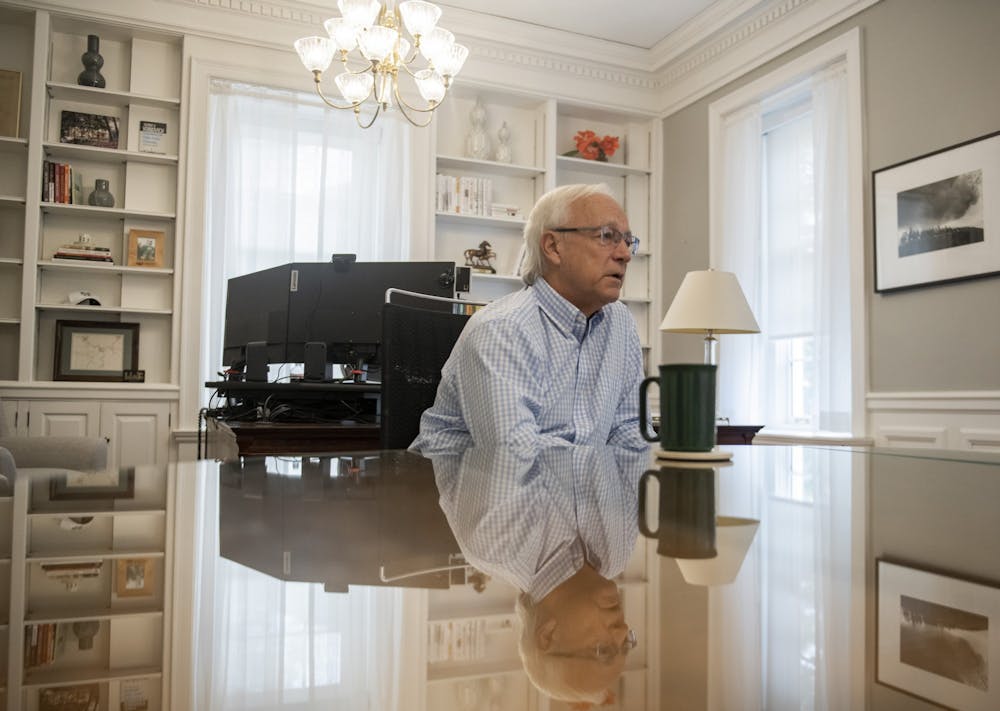Ohio University President Hugh Sherman is implementing a new university-wide advising system that will give students new resources for their future success.
Sherman’s advising program is centered around student success, which the university will promote by helping students create personalized graduation plans. To do this, OU is increasing the number of advisers in every college of the university.
Jennifer Murphy, associate vice provost for OHIO Guarantee Plus graduation plans, said the university is scaling up its advising system to decrease equity gaps and allow students to customize their college experience. To do that, the university is adding 34 advising positions and abolishing 13. Murphy said each student will be able to customize their own graduation plan with the resources OU is adding.
Murphy said each college within the university will hire “success advisers” every student will meet with semesterly to work on their graduation plans. Those individualized plans will help students gain experiential learning opportunities along with making sure they graduate on time.
Along with the success advisers each college within OU will have, each college will also hire “experience designers.” Murphy said OU is adding those positions to allow students to connect with them to find experiential learning opportunities, like a co-op, internship or job shadow.
She also said the university is “reconceptualizing how we are working with students based on industry” by hiring assistant directors of career employer engagement and career coaches. Murphy said the university’s goal is to find new ways for students to find a job that are not “just looking for a job online.”
Sherman, during a July 8 news conference, said the initiative is based on the advising program he instituted while he was dean of the College of Business. Murphy, who worked with Sherman to build that model, said the business college model is a good starting point, but the university-wide plan “is much larger with a much greater scope.”

Ohio University President Hugh Sherman discusses his term on Wednesday, Aug. 4, 2021. (FILE)
She also said the College of Business’ model was proof of the concept’s success because the business college saw increased job placements, internships and alumni engagement.
Gina Gigliotti, a senior studying marketing, said the advising system in the business college “has been more than helpful.” Gigliotti said she has had no trouble contacting an adviser, which is something she has seen her friends in different colleges struggle with. She also said the advisers she has worked with have given great advice on fulfilling required classes and have been very helpful in finding job opportunities.
“I know that they really do everything in their power to help almost every kid land a job right out of college,” Gigliotti said.
Despite the program’s previous success, others in the university have concerns. Joe McLaughlin, vice president of OU’s chapter of the American Association of University Professors, or OU-AAUP, said in an email that while there is nothing wrong with increased attention to advising, he has serious budgetary concerns.
McLaughlin said this advising system is costly and is coming after OU did not renew the contracts of 53 instructional faculty last year. He said that’s concerning because the university is shifting resources from faculty and teachers into an audit function.
“We need people to teach and advance knowledge and we're shifting resources from these activities to staff who help students complete checklists,” McLaughlin said in an email.
He also expressed concern that the system was created without enough input from faculty.
“I am concerned, and I believe I speak for OU-AAUP on this, about the fact that the decision to move resources from faculty to an advising bureaucracy was made with minimal, if any input, from faculty,” McLaughlin said in an email. “These kinds of strategies need to be vetted with faculty and not made by Cutler Hall and the deans.”






